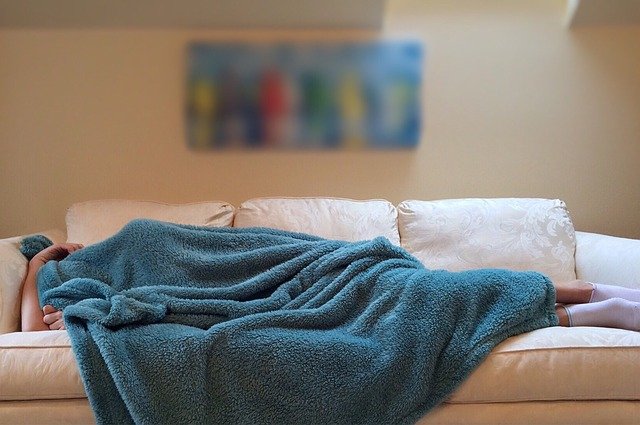What are the Health Risks of Sleep Apnea?
Do you ever wake up tired after a full night’s sleep? Have you woken yourself up snoring or had a family member tell you that you snore loudly at night? If so, you may have sleep apnea. It’s a growing concern, and it is treatable. If you think you may have sleep apnea, talk to your Woodlands, Texas dentist about treatment options. Treatment can help ease symptoms and maybe even prevent heart problems and other serious conditions.
What is sleep apnea?
Sleep apnea is a type of sleep disorder. Your breathing stops and starts while you are sleeping. There are three main types of sleep apnea including:
- Obstructive Sleep Apnea
- Central Sleep Apnea
- Complex Sleep Apnea Syndrome
Obstructive sleep apnea is the most common type and occurs when the throat muscles relax and cause the airway to be blocked while you are sleeping. Central sleep apnea occurs if your brain doesn’t communicate with the muscles that are in control of your breathing. Complex sleep apnea syndrome occurs when a person has both obstructive sleep apnea and central sleep apnea.
Who gets sleep apnea?
Adult Obstructive Sleep Apnea is very common. Recent studies suggest about 4% of adults in the US have OSA. However, this estimate is likely conservative since many people are not aware they have the condition. Numerous factors increase the risk of developing sleep apnea. Here are some of the main risk factors:
- Obesity. Obesity may be a risk factor in as many as 60% of the current cases of OSA. Obesity contributes to the anatomical narrowing of the airway.
- Family history. Those who have a close relative with OSA are likely to develop it themselves.
- Anatomical characteristics. Some people who have smaller facial configurations and lower jaw may be more likely to develop OSA.
- Tobacco use. Smoking, and particularly heavy smokers, have a higher risk of developing OSA.
- Sedatives and alcohol use. Some sedatives and alcohol tend to relax the tissue in the throat, which makes it easier for the airway to be obstructed.
- Hormone abnormalities. Some conditions may increase the risk of OSA including hypothyroidism and acromegaly.
What are the symptoms of sleep apnea?
All types of sleep apnea share a few common symptoms that are a result of poor sleep and decreased oxygen levels while sleeping. A few of the signs and symptoms that could indicate you or your loved one may be suffering from a form of sleep apnea include:
- Excessive daytime sleepiness
- Frequent morning headaches
- Irritability
- Trouble concentrating or difficulty thinking clearly
Obstructive sleep apnea has other symptoms including:
- Chronic snoring. Snoring is usually loud, and you may wake yourself up gasping for air or feeling like you are choking.
- Dry mouth or a sore throat in the mornings.
Snoring and Sleep Apnea
Chronic snoring is the most common symptom of sleep apnea, but just because a person snores, it doesn’t mean they have the condition. Generally, people with sleep apnea do not even know they have breathing problems at night. A roommate, family member, or bed partner makes them aware of their problem. For those who live alone, daytime sleepiness is usually the most likely symptom they recognize.
Health Consequences of Untreated Sleep Apnea
Sleep apnea is a serious condition, and it can lead to various health consequences and complications, especially if it’s untreated. Here are some of the most common health problems that are often linked to untreated sleep apnea.
Daytime Fatigue
Repeatedly waking up throughout the night means you don’t get the restorative sleep you need. This can cause extreme daytime drowsiness, irritability, and fatigue. You likely fall asleep while watching TV, while at work, or while driving. Sleep deprivation can also make you moody, depressed, or quick-tempered.
High Blood Pressure and Cardiovascular Problems
Sleep apnea causes sudden drops in blood oxygen levels which can cause blood pressure to go up. This can also put a strain on the cardiovascular system. For some people, sleep apnea increases their risk of heart attack, stroke, and abnormal heart rhythms.
Diabetes Mellitus
Untreated sleep apnea may increase your risk of developing insulin resistance and type 2 diabetes. This may also be linked to the obesity rate in the US. Glucose levels tend to run higher among people with OSA. It also appears that treating OSA helps to normalize blood sugar levels.
Premature Death
OSA is associated with numerous chronic health conditions. It is also linked with the likelihood of premature death. At greatest risk are middle-aged men.

The Link Between Sleep Apnea and Your Dentist
Not every dentist practices dental sleep medicine. But a general dentist does have the skills and experience to diagnose and treat mild to moderate sleep apnea. When you visit The Woodlands dentist, Dr.Dernick can perform an evaluation to determine if you are suffering from a form of sleep apnea. He can also suggest the use of a CPAP machine to help keep the airways open while you are sleeping. If you can’t use a CPAP or do not wish to, Dr. Robert G. Dernick, DDS can prescribe a dental device or oral appliance to help keep your airway open when you sleep.
The Dentist’s Role in Treating OSA
A dentist is a valuable partner when it comes to treating OSA. Once you receive the diagnosis, Dr. Dernick can make some recommendations that can help. Some dentists focus on dental sleep medicine which uses oral appliances to treat snoring and OSA. Oral appliance therapy helps keep the airway open. There are various types of oral appliances to treat obstructive sleep apnea.
There are two main styles of oral appliances: a mouthguard and a tongue depressor. The tongue depressor keeps the tongue in place and prevents it from going to the back of the throat. A mouthpiece is used to push the jaw forward, keeping the airway open. Dr. Dernick will be able to recommend the dental device that is right for you.
Benefits of Oral Appliance Therapy
For those who suffer from sleep apnea, oral appliances are a great option. They are relatively inexpensive and have few if any, side effects. They fit well since they are custom-made for each patient. Oral appliances are highly effective which is perhaps their biggest advantage.
Contact Your The Woodlands Dentist
Do you wonder if you have sleep apnea? Schedule an exam with Dr. Dernick’s office in The Woodlands, Texas. He can answer your most pressing questions and if you are suffering from sleep apnea, he can recommend an appropriate treatment plan. Call our offices today, or fill out this contact request form.




